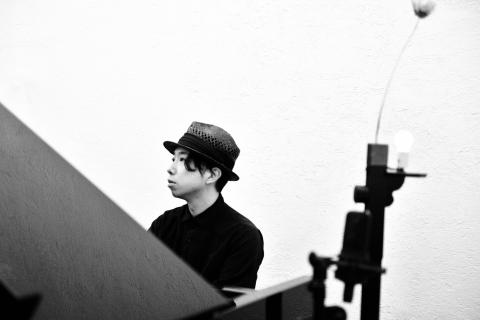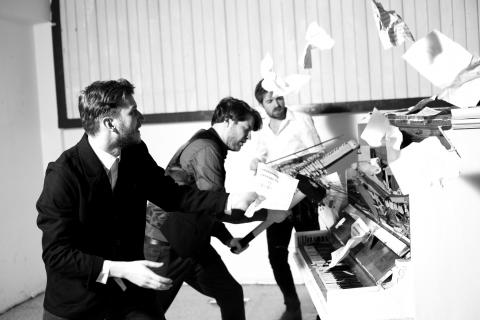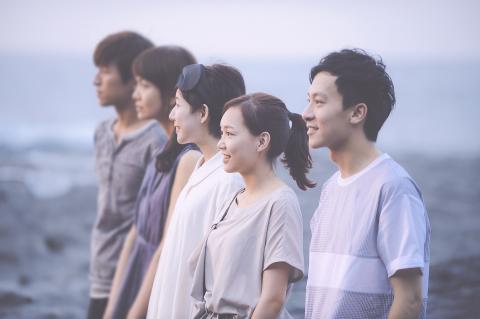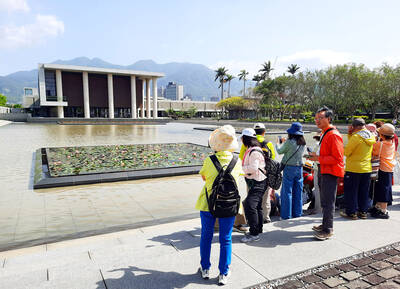P Festival was launched last year as a concert series featuring an international group of avant-garde artists who use piano to push all kinds of boundaries in music. It kicked off for a second time last Friday, and will run through early December with a schedule of 14 performances by musicians and groups that have taken piano from its classical origins to emergent genres roughly grounded in indie rock, experimental noise or even dance club techno — basically, anything but traditional chamber music.
International performers at this year’s P Festival include German experimental pianist Andrea Neumann, Japanese 33-year-old electronic music composer Haruka Nakamura, the Austin, Texas post-rock band Balmorhea, Danish slowcore, shoegaze band Sleep Party People and Berlin group Brandt Brauer Frick, which uses classical instruments to play electronic music.
“P Festival is about bringing a diversity of piano music to audiences, and we hope that listeners start from the perspective of creation rather than performance to understand this instrument and come to a new understanding of music,” says event organizer KK Yeh (葉宛青).

Photo Courtesy of White Wabbit Records
Yeh adds that a lot of people already have a pre-established notion of what piano music is.
“They think that performances of piano music need to be in a concert hall and need to mainly use classical or jazz styles. I think this is really dangerous and that this kind of attitude represents a lack of imagination towards music,” she says.
Each performance features two artists or groups. In most cases, an international group is paired with a local performer. Local musicians include the avant-classical group Cicada, award-winning singer-songwriter Wang Yu-jun (王榆鈞) and the Tainan-based experimental ensemble O. Indie band Sun of Morning (晨曦光廊) will create a special fusion performance by inviting a classical pianist to join their band.

Photo Courtesy of White Wabbit Records
The festival opened last week in Taipei with a sold out performance in Taipei by Andrea Neumann and Wang. Neumann, 47, is a classically trained pianist who since the mid-1990s has been creating music by playing directly on the piano strings with mallets, metal brushes and forks and spoons. The pianos are usually dismantled, with the keyboards and tops removed. The music is experimental and often improvised.
One of the most exciting performers in the series is Brandt Brauer Frick, known for reproducing electronic-style music — ranging from techno dance beats to ambient electronica — with the instruments of traditional chamber music, such as pianos, cello, tuba and so on, though also sometimes with a rock drum kit. Now playing as a trio, the Berlin-based group put out its first album, Mr Machine, in 2011 and has since been invited to the world’s largest rock festivals including Glastonbury and Coachella, while also performing in famous night clubs like Hamburg’s Boiler Room and elite classical music venues like New York’s Lincoln Center. They perform with Denmark’s Sleep Party People on Dec. 1 at The Wall.
Taiwan has a huge array of classical music offerings, most organized by government run or supported arts groups. P Festival, however, comes from White Wabbit Records, which Yeh started as a closet-sized CD shop for indie music 16 years ago. White Wabbit is now Taipei’s most established CD shop for indie music and they release works by both local and international bands, while promoting several concerts each year.

Photo Courtesy of White Wabbit Records
Yeh says she realizes that promoting avant-garde piano music is a bit of an anomaly and it took a bit of adjustment for the public.
“Last year a lot of people thought we were doing classical music concerts,” she says. “But this year, the audience is looking forward to see what kind of strange piano players we are inviting.”
■ P Festival takes place in Taipei and Tainan at various venues through early December. O and Haruka Nakamura perform Oct. 20 in Taipei and Oct. 23 in Tainan. Cicada and Balmorhea perform Nov. 13 in Taipei and Nov. 14 in Tainan. Sleep Party People and Brandt Brauer Frick perform Dec. 1 in Taipei at The Wall.
■ For more information and advance tickets, visit www.pfestival.tw.

When the South Vietnamese capital of Saigon fell to the North Vietnamese forces 50 years ago this week, it prompted a mass exodus of some 2 million people — hundreds of thousands fleeing perilously on small boats across open water to escape the communist regime. Many ultimately settled in Southern California’s Orange County in an area now known as “Little Saigon,” not far from Marine Corps Base Camp Pendleton, where the first refugees were airlifted upon reaching the US. The diaspora now also has significant populations in Virginia, Texas and Washington state, as well as in countries including France and Australia.

On April 17, Chinese Nationalist Party (KMT) Chairman Eric Chu (朱立倫) launched a bold campaign to revive and revitalize the KMT base by calling for an impromptu rally at the Taipei prosecutor’s offices to protest recent arrests of KMT recall campaigners over allegations of forgery and fraud involving signatures of dead voters. The protest had no time to apply for permits and was illegal, but that played into the sense of opposition grievance at alleged weaponization of the judiciary by the Democratic Progressive Party (DPP) to “annihilate” the opposition parties. Blamed for faltering recall campaigns and faced with a KMT chair

Article 2 of the Additional Articles of the Constitution of the Republic of China (中華民國憲法增修條文) stipulates that upon a vote of no confidence in the premier, the president can dissolve the legislature within 10 days. If the legislature is dissolved, a new legislative election must be held within 60 days, and the legislators’ terms will then be reckoned from that election. Two weeks ago Taipei Mayor Chiang Wan-an (蔣萬安) of the Chinese Nationalist Party (KMT) proposed that the legislature hold a vote of no confidence in the premier and dare the president to dissolve the legislature. The legislature is currently controlled

Dull functional structures dominate Taiwan’s cityscapes. But that’s slowly changing, thanks to talented architects and patrons with deep pockets. Since the start of the 21st century, the country has gained several alluring landmark buildings, including the two described below. NUNG CHAN MONASTERY Dharma Drum Mountain (法鼓山, DDM) is one of Taiwan’s most prominent religious organizations. Under the leadership of Buddhist Master Sheng Yen (聖嚴), who died in 2009, it developed into an international Buddhist foundation active in the spiritual, cultural and educational spheres. Since 2005, DDM’s principal base has been its sprawling hillside complex in New Taipei City’s Jinshan District (金山). But